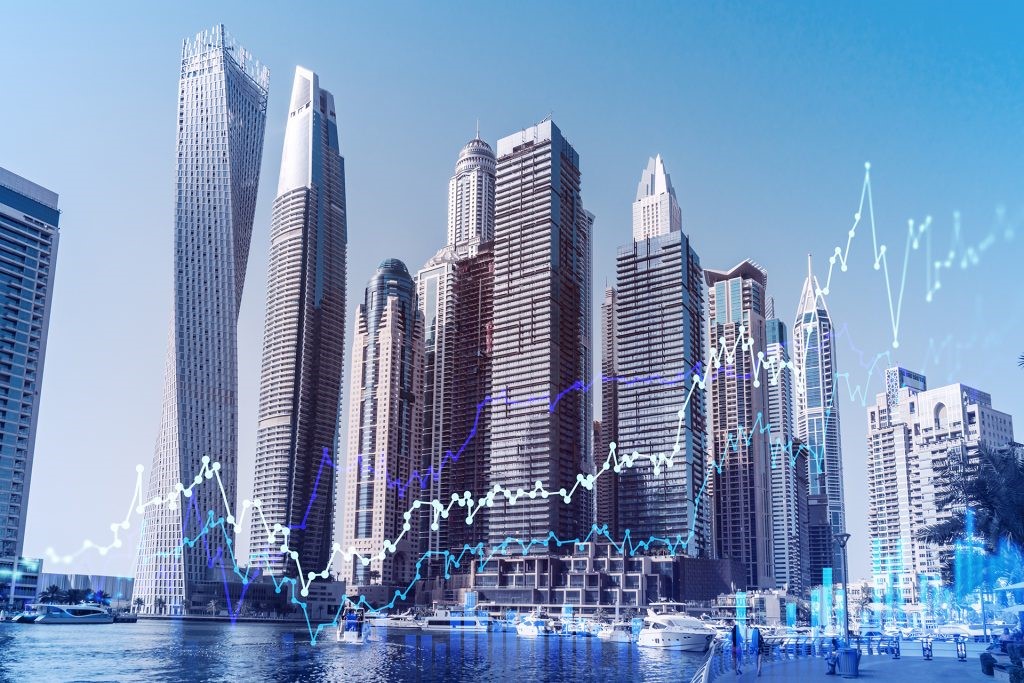By SHUAA Capital
As global markets continue to adjust to shifting geopolitical dynamics, inflationary pressures, and the acceleration of digital transformation, the Middle East—led by the United Arab Emirates (UAE)—has emerged as a magnet for capital, innovation, and financial opportunity. With a blend of political stability, regulatory foresight, and visionary economic planning, the region is fast becoming a global hub for both institutional and private investors.
1. UAE: A Stable Anchor in a Volatile World
Amid global economic uncertainty, the UAE has proven its resilience. The country’s GDP is projected to grow by 4% in 2025, with non-oil sectors now accounting for nearly 75% of economic activity. Growth is being driven by robust tourism, fintech, real estate, and logistics sectors.
Dubai International Financial Centre (DIFC) and Abu Dhabi Global Market (ADGM) continue to climb global rankings as preferred destinations for financial firms, offering common-law frameworks, zero personal income tax, and strong investor protection. DIFC alone saw record-breaking growth in 2024, with over 1,823 new company registrations, bringing the total to 6,920 active companies, a 25% increase from the previous year.
2. Capital Market Reforms and Listings Boom
GCC capital markets are undergoing transformation. In 2024, the UAE witnessed a wave of successful IPOs, particularly in sectors like renewable energy, logistics, and fintech. According to the Abu Dhabi Securities Exchange (ADX), market capitalization crossed AED 2.93 trillion by the end of Q1 2025, marking a 3.2% year-on-year increase. Exchange-traded funds (ETFs) saw their market value more than double, rising 109% to approximately AED 1.64 billion, indicating growing investor appetite for diversified investment vehicles. Gulf Business
Furthermore, sovereign wealth funds like Mubadala and ADQ continue to deploy capital across the region and beyond, catalyzing growth in sectors such as healthcare, artificial intelligence, and space technology.
3. Family Offices and Private Wealth Migration
The UAE is now home to over 81,000 resident millionaires, including 237 centimillionaires and 20 billionaires, according to Henley & Partners’ latest report. Dubai recorded a 102% growth in the number of millionaires between 2014 and 2024, ranking this year the 18th city on the list of the Top 50 Cities for Millionaires. Moneyweek+2Economy Middle East+2Medium+2
The recent introduction of single family office licenses, coupled with the UAE’s Golden Visa program, is accelerating the relocation of private capital to the region. SHUAA Capital is at the forefront of serving this demographic, offering structured solutions in wealth management, succession planning, and cross-border investment.
4. Regional Integration and Cross-Gulf Synergies
Beyond the UAE, the broader GCC region is harmonizing regulations and facilitating cross-border financial flows. Saudi Arabia’s Vision 2030, Oman Vision 2040, and Qatar National Vision 2030 are all fueling investment in infrastructure, tourism, energy transition, and digital transformation.
In 2025, Saudi Arabia is projected to be the world’s fastest-growing G20 economy, posting a projected growth of 4.4%, driven by non-oil investments and PIF-backed mega projects like NEOM and The Line.
Cross-Gulf deals in fintech, green hydrogen, and logistics are creating a new financial corridor, with the UAE as the gateway.
5. Fintech and the Digital Asset Revolution
The UAE’s leadership in fintech is backed by a clear regulatory framework. ADGM’s Digital Asset Regulatory Framework and Dubai’s Virtual Assets Regulatory Authority (VARA) position the country as one of the most forward-looking jurisdictions globally.
Over 800 fintech startups operate in the region, with VC funding exceeding $1.3 billion in 2024, a 13% year-on-year decline, yet demonstrating resilience amid global downturns. The UAE and KSA led in capital deployment, with KSA showing a remarkable 391% increase in funding driven by key deals. MAGNiTT
Conclusion: Opportunity Demands Foresight
In a world of decoupling and divergence, the UAE and the broader GCC offer a compelling alternative: stability with ambition, regulation with innovation, and tradition with global reach. For investors, corporates, and family offices alike, the region offers long-term opportunity in a rapidly changing global landscape.
At SHUAA Capital, we are proud to be at the heart of this transformation—mobilizing capital, delivering performance, and building bridges between the region and the world.



